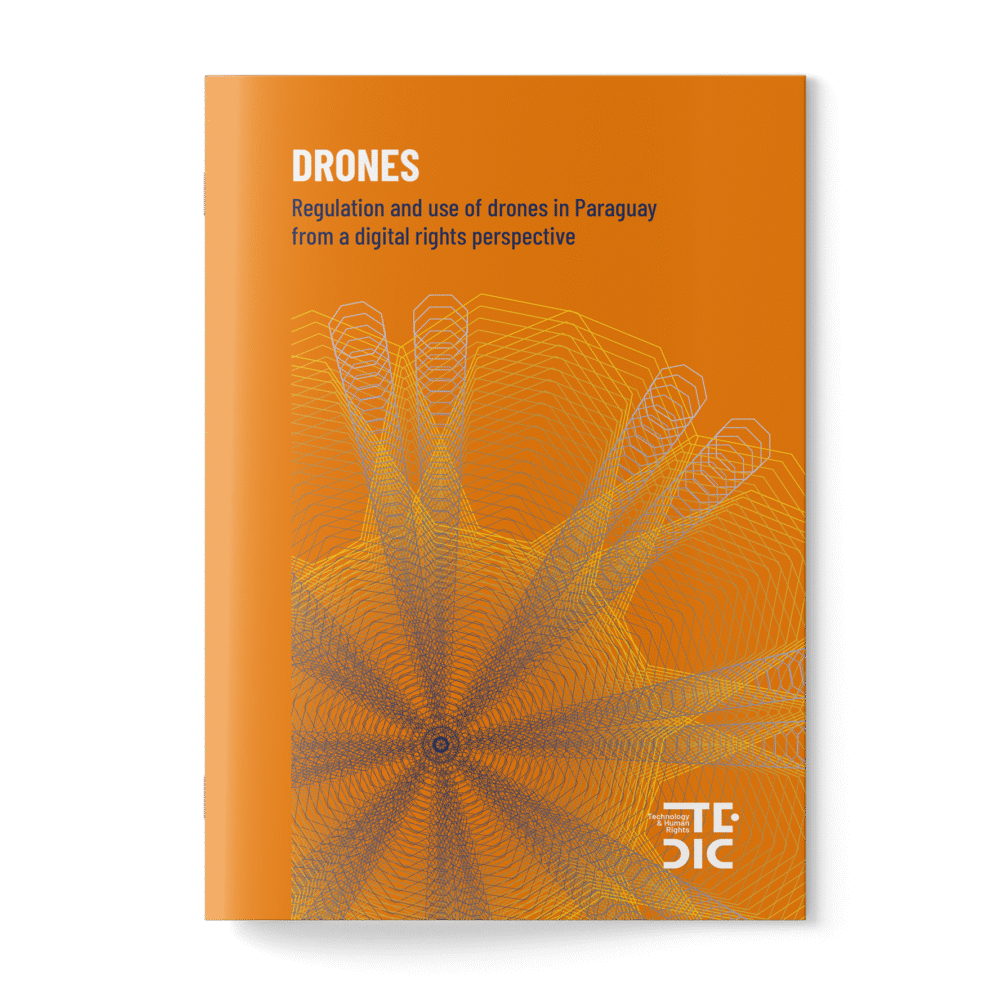
In recent years, drones have moved from being simple recreational tools to becoming key devices in sectors as diverse as agriculture, security, journalism, and environmental management. This global expansion, however, does not come without tensions: the same technology that enables the delivery of medicines to remote areas can also be used to monitor protests, control territories, or deepen social inequalities. Aware of these dilemmas, TEDIC presents the research “Drones: regulation and use in Paraguay from a digital rights perspective”, conducted by Antonia Bogado and Hugo Mendieta, under the coordination of Maricarmen Sequera.
The study highlights how, in Paraguay, drone regulation remains fragmented and weak in the face of the growing challenges posed by their use. Through access-to-information requests, interviews, and document reviews, the researchers reveal regulatory gaps, lack of transparency in public procurement, and concrete risks to fundamental rights such as privacy, freedom of expression, and the right to protest.
At regional and global levels, the research shows alarming patterns: the deployment of drones in armed conflicts, their use for mass surveillance in Latin American cities, and the incorporation of biometric technologies that reinforce discriminatory biases. These international experiences serve as a warning for Paraguay, where the lack of oversight could open the door to similar practices.
The findings point out that drones are dual-use technologies: they can be allies in environmental monitoring, precision agriculture, or humanitarian assistance, but they can also become instruments of social control and the militarization of civilian spaces. The key lies in defining clear, transparent, and human rights–centered regulatory frameworks that make it possible to harness their benefits without sacrificing freedoms.
The report’s conclusions are clear: it is urgent to open a public debate on the use of drones in Paraguay, establish independent oversight mechanisms, and adopt a robust personal data protection law. Only then can we ensure that these emerging technologies serve the common good, rather than becoming new tools of surveillance or repression.
Research: Antonia Bogado and Hugo Mendieta.
